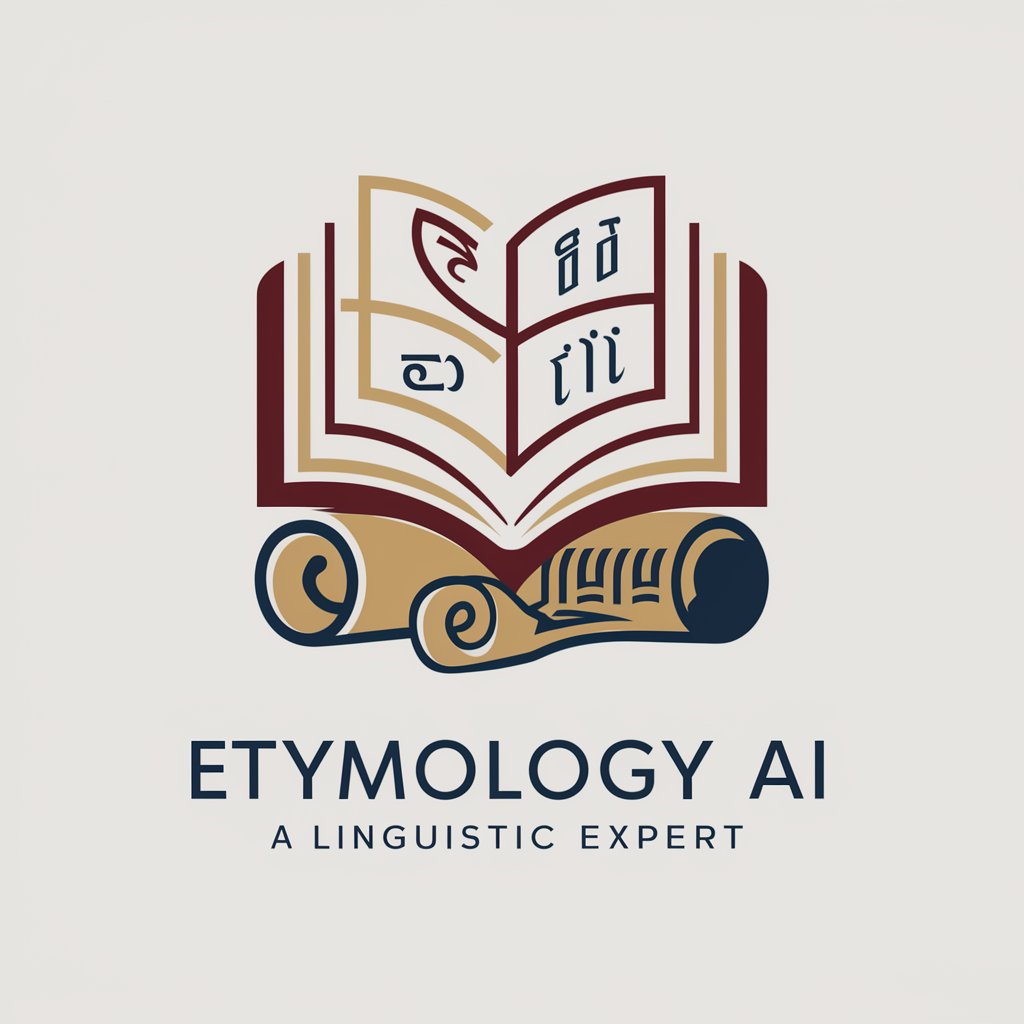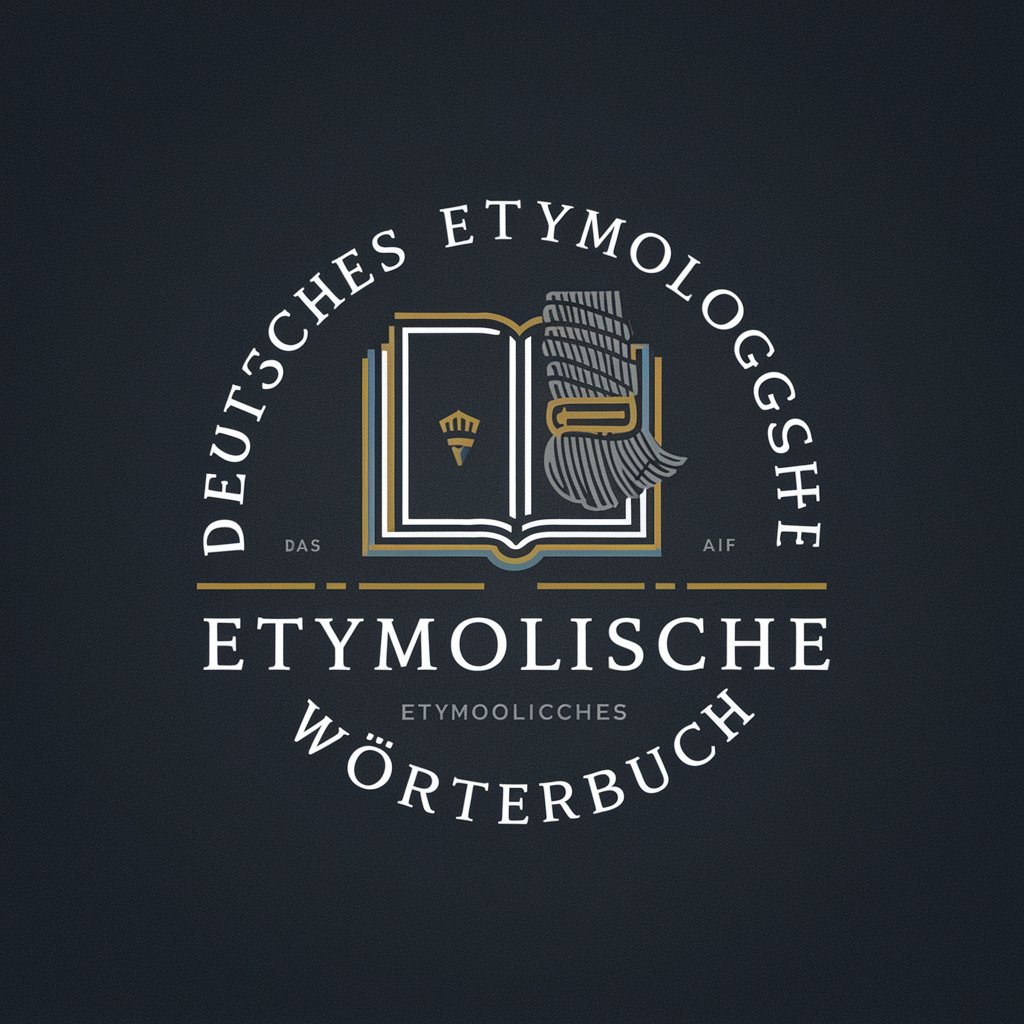
etymologia - etymology insights for word origins.

AI-powered word origin exploration.
le chat
the cat
die Katze
el gato
Get Embed Code
Introduction to Etymologia
Etymologia is a specialized linguistic tool designed to uncover the origins and historical development of words, focusing primarily on their roots in ancient languages such as Latin, Greek, and other influential linguistic traditions. Its primary goal is to provide users with accurate, clear, and detailed information about the evolution of words, including how their meanings and forms have transformed over time. Etymologia is equipped to answer complex queries about word origins, using historical data to explain semantic shifts, morphological changes, and cultural influences. For instance, if a user queries the word 'salary,' etymologia would explain its origin from the Latin word 'salarium,' referring to the payment given to Roman soldiers for purchasing salt, a valuable commodity at the time. This highlights not just the meaning, but also the socio-cultural context that shaped the word's evolution. Powered by ChatGPT-4o。

Core Functions of Etymologia
Etymological Analysis
Example
The word 'quarantine' originates from the Italian 'quaranta,' meaning 'forty,' referring to the forty days ships were isolated during the Black Death to prevent disease spread.
Scenario
A historian researching medieval responses to pandemics asks for the origin of medical terms used in historical texts.
Cross-linguistic Root Identification
Example
The word 'democracy' derives from the Greek 'demos' (people) and 'kratos' (power or rule), directly translating to 'rule by the people.'
Scenario
A political science student wants to understand the roots of modern political terminology and their implications for governance theories.
Historical Contextualization
Example
The word 'candidate' comes from the Latin 'candidatus,' meaning 'clothed in white,' a reference to Roman politicians wearing white togas to symbolize their purity.
Scenario
A classicist writing a paper on Roman political customs seeks to understand the etymology of terms associated with elections and political practices.
Semantic Shift Explanation
Example
The word 'nice' initially meant 'foolish' or 'ignorant' in Middle English, derived from the Latin 'nescius,' meaning 'not knowing.' Its meaning evolved over time to its current use.
Scenario
A linguistics professor prepares a lecture on how the meanings of common English words have shifted through centuries.
Word Usage Evolution
Example
The word 'computer' initially referred to a human who performed calculations, evolving in the mid-20th century to its current meaning as a machine for processing data.
Scenario
A tech enthusiast exploring the history of technology asks about how the terminology around modern devices developed and changed over time.
Ideal User Groups for Etymologia
Linguists and Etymologists
Linguists and scholars of etymology benefit greatly from etymologia, as it provides detailed breakdowns of word origins and linguistic evolution. These users value the precision and historical context offered, helping them in academic research or teaching about language development.
Writers and Journalists
Writers and journalists often need to understand the roots and historical meanings of words to add depth and nuance to their work. Etymologia helps them by explaining the layers of meaning that words have accumulated over time, enriching their content.
Students of Language, History, or Culture
Students in fields such as linguistics, history, anthropology, and cultural studies use etymologia to deepen their understanding of how language reflects and shapes human society. By tracing words back to their origins, students gain insights into cultural exchanges, power dynamics, and technological advancements.
Educators and Professors
Teachers and professors can use etymologia to create rich, informative lessons about the development of language, whether they are focusing on English or other languages. It aids in explaining complex linguistic transformations in a clear and structured way.
Curious Learners and Enthusiasts
People with a casual interest in language, history, or trivia often turn to etymologia to satisfy their curiosity about word origins. These users enjoy learning about the unexpected stories behind familiar terms and phrases, which can enhance their appreciation of language.

How to Use Etymologia
Step 1: Access the Tool
Visit yeschat.ai for a free trial without login. There’s no need for ChatGPT Plus, making it easy to explore the tool instantly.
Step 2: Identify Your Word
Choose the word or phrase you wish to explore. Etymologia specializes in analyzing the origins, meanings, and transformations of words.
Step 3: Enter the Word or Query
Input your word directly into the interface. For best results, include context or specific requests for deeper insight into historical or linguistic usage.
Step 4: Review and Interpret Results
Read the detailed etymological breakdown provided. Etymologia explains the word’s roots, its evolution over time, and offers examples from different periods.
Step 5: Apply or Save Information
Use the results for academic research, language learning, or writing enhancement. Save important findings or bookmark them for future reference.
Try other advanced and practical GPTs
龙年多风格头像生成器
Create unique avatars powered by AI

Lyrics Analyzer
AI-powered insights into song lyrics

Norma ABNT bot
AI-powered ABNT formatting and citation help.

Spark: Electrical Engineering Assistant
AI-Powered Electrical Engineering Assistance

Electrical Engineer GPT
AI-powered electrical engineering solutions

Devz Project Plan Generator
AI-powered project plans in minutes.

Game Character Diary
Create immersive game-based narratives with AI

BigQuery SQL Optimizer
AI-powered tool to optimize SQL queries.
マインドマップ・サマライザー
AI-powered mind map summarization for everyone.

Home Style Advisor
AI-Powered Interior Design for Everyone
MBBS Medical Tutor
AI-powered medical tutor for students

soar
Transforming text into dynamic video with AI

Common Questions about Etymologia
What types of words can Etymologia analyze?
Etymologia can analyze a wide range of words, from ancient and classical languages like Greek and Latin to modern terms in English, French, Spanish, and more. It’s ideal for words with rich historical or linguistic backgrounds.
How does Etymologia handle word evolution?
Etymologia traces the evolution of words by exploring their origins, meanings, and transformations over centuries. It connects ancient roots with modern usage, showing how meanings and forms have shifted in different languages and cultures.
Can Etymologia help with academic research?
Yes, Etymologia is a powerful tool for academic research, especially in linguistics, history, and literature. It provides thorough insights into word origins and helps contextualize terms within their historical and cultural developments.
Does Etymologia support multilingual analysis?
Yes, Etymologia can analyze words in multiple languages, particularly those rooted in ancient languages such as Latin, Greek, and others, making it useful for understanding cross-linguistic influences and loanwords.
How is Etymologia different from a dictionary?
Unlike a standard dictionary, Etymologia delves deep into the history of a word, exploring its ancient roots, transformations, and contextual evolution. It provides much more than just definitions—offering a linguistic journey through time.





